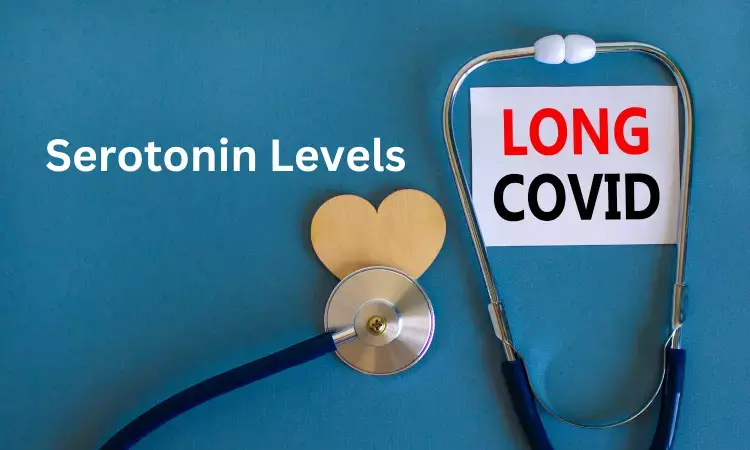- Home
- Medical news & Guidelines
- Anesthesiology
- Cardiology and CTVS
- Critical Care
- Dentistry
- Dermatology
- Diabetes and Endocrinology
- ENT
- Gastroenterology
- Medicine
- Nephrology
- Neurology
- Obstretics-Gynaecology
- Oncology
- Ophthalmology
- Orthopaedics
- Pediatrics-Neonatology
- Psychiatry
- Pulmonology
- Radiology
- Surgery
- Urology
- Laboratory Medicine
- Diet
- Nursing
- Paramedical
- Physiotherapy
- Health news
- Fact Check
- Bone Health Fact Check
- Brain Health Fact Check
- Cancer Related Fact Check
- Child Care Fact Check
- Dental and oral health fact check
- Diabetes and metabolic health fact check
- Diet and Nutrition Fact Check
- Eye and ENT Care Fact Check
- Fitness fact check
- Gut health fact check
- Heart health fact check
- Kidney health fact check
- Medical education fact check
- Men's health fact check
- Respiratory fact check
- Skin and hair care fact check
- Vaccine and Immunization fact check
- Women's health fact check
- AYUSH
- State News
- Andaman and Nicobar Islands
- Andhra Pradesh
- Arunachal Pradesh
- Assam
- Bihar
- Chandigarh
- Chattisgarh
- Dadra and Nagar Haveli
- Daman and Diu
- Delhi
- Goa
- Gujarat
- Haryana
- Himachal Pradesh
- Jammu & Kashmir
- Jharkhand
- Karnataka
- Kerala
- Ladakh
- Lakshadweep
- Madhya Pradesh
- Maharashtra
- Manipur
- Meghalaya
- Mizoram
- Nagaland
- Odisha
- Puducherry
- Punjab
- Rajasthan
- Sikkim
- Tamil Nadu
- Telangana
- Tripura
- Uttar Pradesh
- Uttrakhand
- West Bengal
- Medical Education
- Industry
Long covid linked to declined serotonin levels along with viral persistence

Long Covid or Post-acute sequelae of COVID-19 (PASC) pose a significant global health challenge. Several studies reports pathophysiological highlights of COVID-19, activation of inflammatory cascade can be mentioned. They could cause dysfunction in various organs including the brain with some symptoms such as olfactory and taste disorders, headache, dizziness, myalgia, delirium, confusion, irritability, the altered consciousness, depression, anxiety, stress, and insomnia.
The pathophysiology is unknown, and no effective treatments have been found to date. Researchers in the current study proposed a mechanism that links all four hypotheses in a single pathway and provides actionable insights for therapeutic interventions.
The study published in Cell journal reports linking viral infection with reduced levels of serotonin, a neurotransmitter involved in learning, memory, and mood, has proposed a new potential mechanism underlying post–COVID-19 condition. Also known as long COVID, the condition involves symptoms such as fatigue, memory loss, and cognitive impairment.
Researchers evaluated from the human participants, mice, and organoid cultures, and found that long COVID was tied with a decline in serotonin. A viral reservoir in the gut appeared to trigger inflammation that decreased intestinal absorption of tryptophan, serotonin’s precursor molecule.
The key findings of the study are
• Researchers find that PASC are associated with serotonin reduction. Serotonin activity supports vagus nerve function, among other roles.
• In the study, serotonin loss was associated with lower nerve activity. Dysfunction in the vagus nerve was linked with characteristic long COVID symptoms such as memory loss and hippocampal dysfunction.
• Viral infection and type I interferon-driven inflammation reduce serotonin through three mechanisms: diminished intestinal absorption of the serotonin precursor tryptophan; platelet hyperactivation and thrombocytopenia, which impacts serotonin storage; and enhanced MAO-mediated serotonin turnover.
• Peripheral serotonin reduction, in turn, impedes the activity of the vagus nerve and thereby impairs hippocampal responses and memory.
These findings provide a possible explanation for neurocognitive symptoms associated with viral persistence in Long COVID, which may extend to other post-viral syndromes.
“Clinicians treating patients with long COVID have been relying on personal reports from those patients to determine if their symptoms are improving,Sara Cherry, PhD, an author of the study published “Now, our research shows that there are biomarkers we may be able to use to match patients to treatments or clinical trials.” They ended.
Reference: Andrea C. Wong, Ashwarya S. Devason, Iboro C. Umana; Serotonin reduction in post-acute sequelae of viral infection; Cell; October 16, 2023DOI:https://doi.org/10.1016/j.cell.2023.09.013
MSc. Neuroscience
Niveditha Subramani a MSc. Neuroscience (Faculty of Medicine) graduate from University of Madras, Chennai. Ambitious in Neuro research having worked in motor diseases and neuron apoptosis is interested in more of new upcoming research and their advancement in field of medicine. She has an engrossed skill towards writing and her roles at Medical dialogue include Sr. Content writer. Her news covers new discoveries and updates in field of medicine. She can be reached at editorial@medicaldialogues.in
Dr Kamal Kant Kohli-MBBS, DTCD- a chest specialist with more than 30 years of practice and a flair for writing clinical articles, Dr Kamal Kant Kohli joined Medical Dialogues as a Chief Editor of Medical News. Besides writing articles, as an editor, he proofreads and verifies all the medical content published on Medical Dialogues including those coming from journals, studies,medical conferences,guidelines etc. Email: drkohli@medicaldialogues.in. Contact no. 011-43720751


